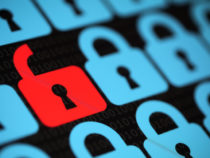Bank robberies are arguably the oldest crimes in the world. Things have changed from blazing guns to the thieves quietly sitting behind computer screens, using sophisticated software to clean out bank accounts.
In a sense, bank robberies with guns were easier to prevent, and all that was needed then was physical security. However, with cybercrime, it is much harder to mitigate the risks as you are fighting an unseen enemy.
How can financial institutions stay protected?
Financial institutions can take several steps toward the prevention of cybercrime by preventing the loss of client data, funds, and company reputation.…
Information is a key part of any business. In fact, information is now one of the most valuable assets of a business, which is why protecting business information is important. You can no longer rely on consumer-grade solutions to ensure the safety of sensitive business data.
Despite the many security measures that you can now put in place, however, there are still times when an information breach is a reality that needs to be faced. Dealing with such a case is never easy, but there are a few things you can do to make sure that you are handling the issue correctly.…
Web apps are reaching such levels of complexity that they’re gradually becoming harder and harder to secure. This is the problem that RASP technology aims to address; essentially, it stops any cyber security threat right in its tracks before it has a chance to taint your reputation and customer relations. Apart from that, there are plenty of other reasons why you should be using it:
1. Make your apps secure without touching their code
By using the RASP technology, you won’t have to alter the code of your web apps.…
When running a business, you rely on various types of data and computing technologies to grow and succeed. And with the emergence of the internet and the advancement of computing tools, it becomes easier to store large amounts of data that are important to your business processes. Crucial information stored in servers can include customers’ credit card details, employee databases, and numerous types of business files—all vital to keeping your company going. But what if you lose these sensitive data or they become compromised because of premeditated malicious attacks?…




